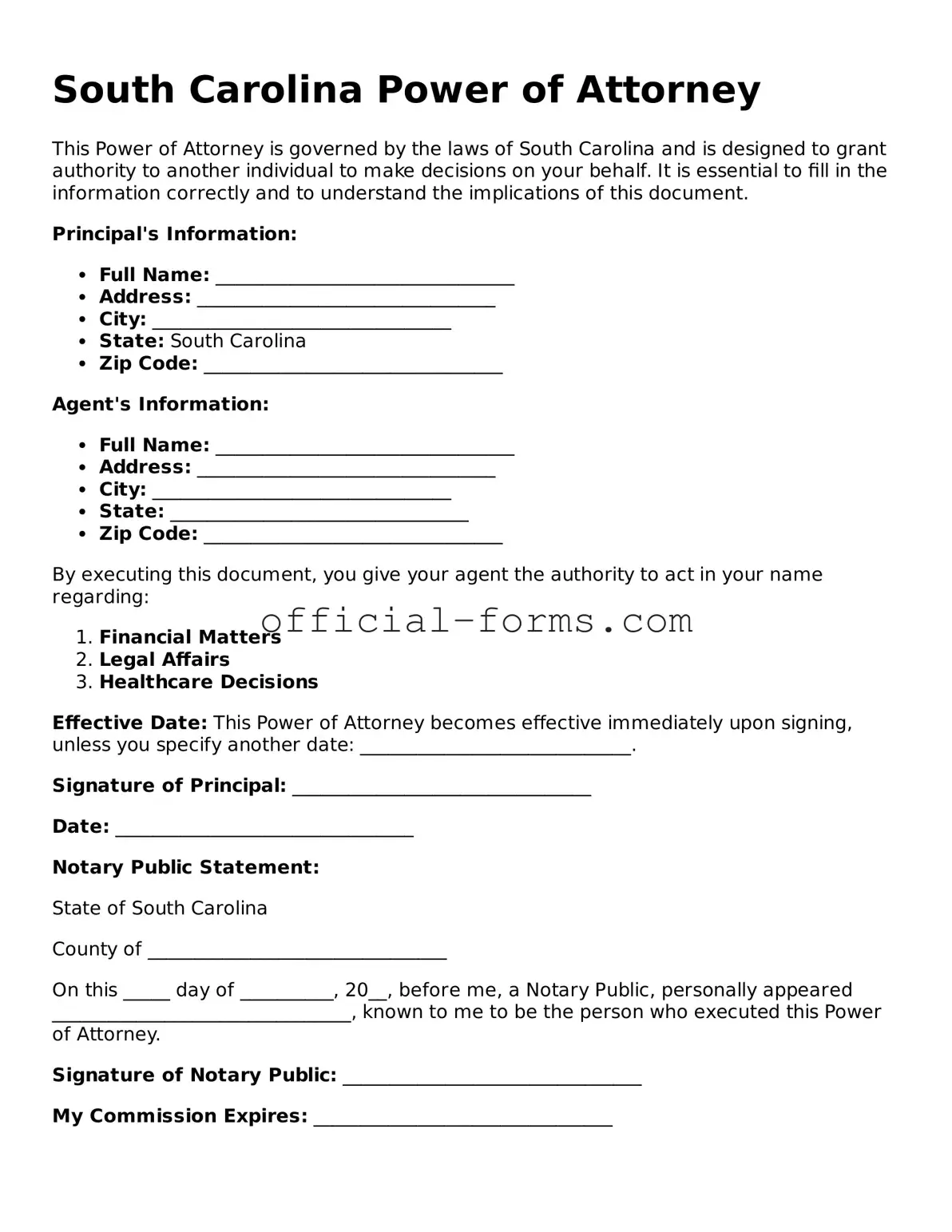Filling out a Power of Attorney form in South Carolina is an important task that requires careful attention to detail. One common mistake individuals make is failing to clearly identify the principal and agent. The principal is the person granting authority, while the agent is the one receiving it. If either party is not accurately named, it can lead to confusion and potential legal issues down the line.
Another frequent error involves not specifying the powers granted to the agent. The form allows for a range of authorities, from managing finances to making healthcare decisions. Omitting specific powers or using vague language can result in limitations that may not align with the principal’s intentions. It is crucial to be explicit about the scope of authority to avoid misunderstandings.
People often overlook the importance of signatures. Both the principal and the agent must sign the document for it to be valid. In some cases, individuals may assume that a witness or notary is sufficient. However, without the necessary signatures, the Power of Attorney may not hold up in legal situations.
Another mistake involves the failure to date the document. A Power of Attorney must be dated to establish when the authority begins. Without a date, it can create uncertainty regarding the timing of the agent's powers, which can complicate matters if the principal becomes incapacitated.
Individuals may also neglect to consider the need for witnesses or notarization. South Carolina law requires that certain Powers of Attorney be witnessed or notarized to be valid. Skipping this step can invalidate the document, rendering it ineffective when it is needed most.
In addition, people sometimes do not keep copies of the completed form. Once the Power of Attorney is filled out, it is essential to provide copies to the agent and any relevant institutions, such as banks or healthcare providers. Failing to do so can lead to situations where the agent is unable to act on behalf of the principal.
Another common oversight is not reviewing the document periodically. Circumstances can change, and the original intentions may no longer align with the principal's current wishes. Regularly reviewing and updating the Power of Attorney ensures that it remains relevant and effective.
Lastly, individuals may not seek legal advice when needed. While it is possible to fill out the Power of Attorney form independently, consulting with a legal professional can help clarify any uncertainties. This guidance can prevent mistakes and ensure that the document meets all legal requirements.

